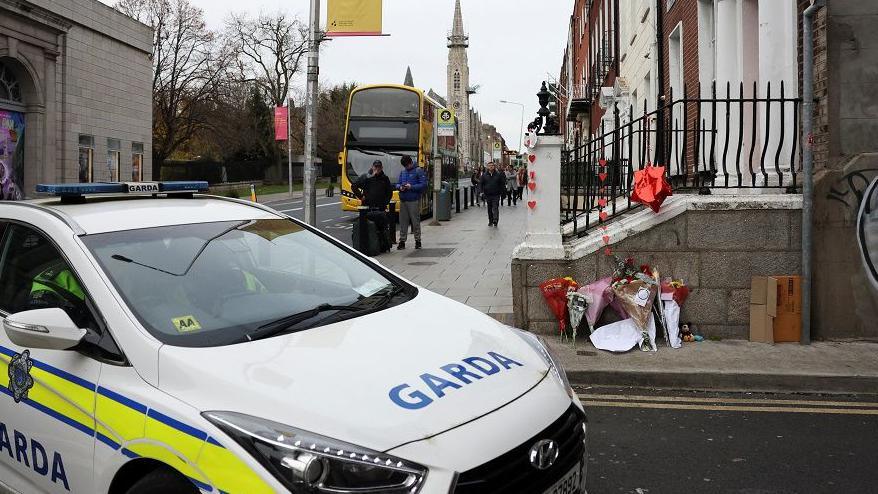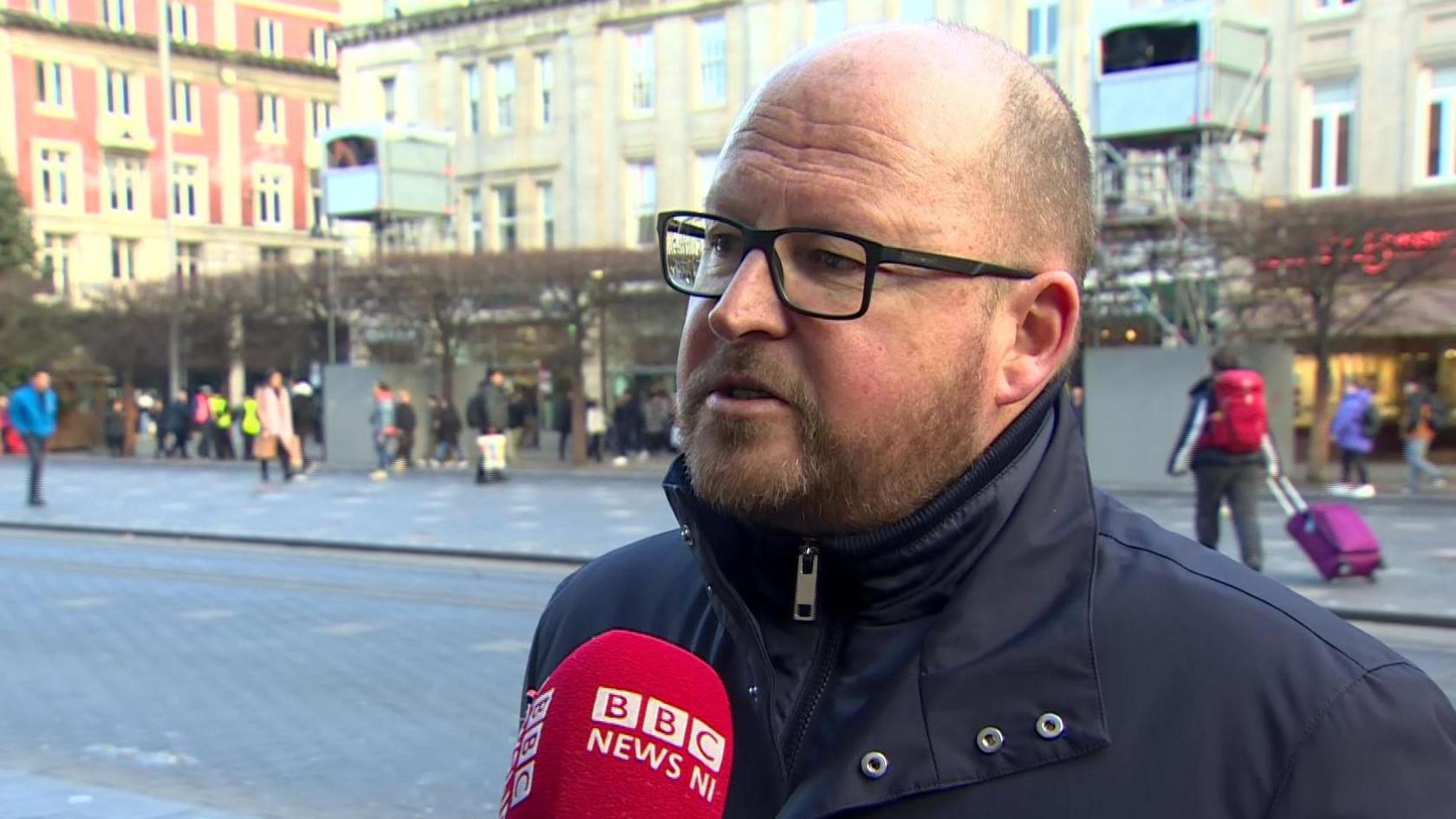Rally to support migrants days after Dublin riot
The ICTU-led rally began in O'Connell Street at lunchtime on Monday
At a glance
A rally is held in Dublin in support of migrant workers following last week's riots in the Irish capital
The riots broke out last Thursday, just hours after three children and a school worker were stabbed outside a city centre school
The riots were blamed on a "lunatic, hooligan faction driven by a far-right ideology" by Ireland's police chief
A union leader said the violence left some migrant workers "very fearful"
- Published
More than 500 people attended a solidarity rally in Dublin days after city centre riots erupted in the aftermath of a knife attack on children.
The rally was organised by Irish Congress of Trade Unions (ICTU) which represents more than 800,000 workers across the island of Ireland.
The aim of the event was to show people from migrant backgrounds that they are welcome in Ireland, according to ICTU general secretary Owen Reidy.
He said many migrant workers employed in Dublin's hospitality industry "were too afraid to come in to work" on the day after the riots.
"We want to say that Ireland is not full," Mr Reidy told BBC News NI.
"We want to support 'Ireland for all'. We want a diverse Ireland.
"Whether you live/work in Dublin; whether you were born here or not; whether you were born in the four corners of the globe - this is your home.
"This was an attack on one community and they are part of our community."

Floral tributes have been laid at the scene of the stabbing outside a Dublin school
The riot began on Thursday evening, just hours after three children and a school care assistant were stabbed outside a primary school on Parnell Square.
The children were lining up after class at Gaelscoil Choláiste Mhuire when they were attacked by a man holding a knife.
Two girls aged five and six were stabbed, along with a six-year-old boy.
Their care assistant, a woman in her 30s, tried to protect the children but she was also stabbed and seriously wounded.
She remains in hospital along with the five-year-old girl, who was critically injured.
The boy was discharged from hospital on Friday while the six-year-old girl, who had head injuries, was discharged over the weekend.
The suspect, who is in his late 40s, is understood to have held Irish citizenship for about 20 years.
He was also taken to hospital after the attack.
Rioters took the streets hours after the stabbing, attacking gardaí (police officers), burning vehicle and breaking into shops to loot their stock.
About 500 people were involved in the violence, which led the Garda (the Irish police) to deploy its biggest ever response to a public order incident.
Several gardaí were injured, a Luas tram was destroyed and three buses were burned.
Garda Commissioner Drew Harris blamed the rioting on a "lunatic, hooligan faction driven by a far-right ideology".
Watch: Fireworks and looting as riots rocks Dublin
In the wake of the riot, the leader of the opposition, Sinn Féin's Mary Lou McDonald, criticised Mr Harris's view that the violence could not have been anticipated.
Ms McDonald called on the commissioner and Justice Minister Helen McEntee to resign.
On Monday, Mr Harris and Ms McEntee were invited to meet the Oireachtas (Irish parliament) Justice Committee on Wednesday to discuss the riot.
Irish broadcaster RTÉ has reported that Ms MsEntee said she is happy to appear before the committee, but she would not be available on the requested day due to prior commitments.
'Very fearful'

ICTU general secretary Owen Reidy said Dublin was home to many migrant workers
Hundreds of union members attended Monday's rally, alongside representatives from several political parties including Sinn Féin, People before Profit and the Labour Party.
Mr Reidy also praised the emergency services, local authority workers, health service staff and the media who were on duty during Thursday night’s violence.
"As the trade union movement on the island of Ireland we thought it was important that we created the space for people who live in Dublin, who work in Dublin to come together symbolically to show solidarity for the workers who were in harm's way last Thursday's night," Mr Reidy said.
"So we're talking about our gardaí; we're talking about Dublin Fire Brigade; we're talking about media workers; bus workers; Luas (tram) workers.
"And also those retail workers who were very concerned about the clean-up the next day, the local-authority workers, and we know many hospitality workers, particularly from a migrant background, are very fearful."